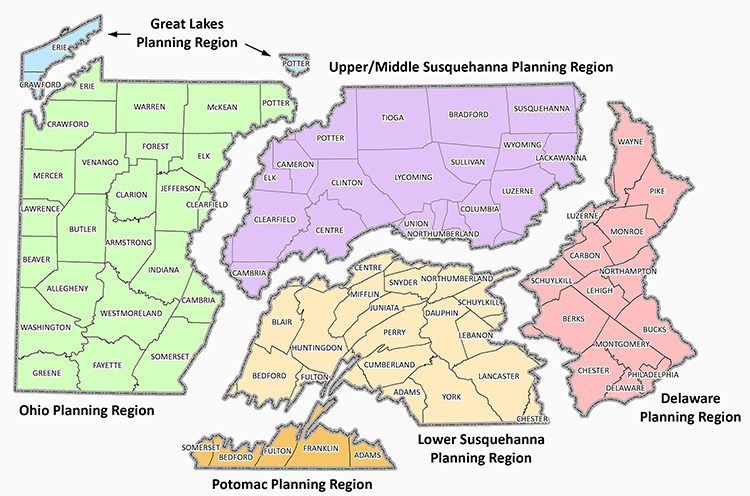“While Pennsylvania is a water-rich state, our water resources are affected by many factors, including the warming climate, increased development, and others,” said DEP Acting Secretary Rich Negrin. “The State Water Plan helps leaders understand how these factors can affect water resources and make planning decisions that protect this precious natural resource for all Pennsylvanians.”
The plan recommends 100 actions statewide in areas such as floodplain and stormwater management, water withdrawal policy, contaminants of emerging concern, and others.
It also recommends actions tailored to each of six water planning regions across Pennsylvania: the Great Lakes basin and the Upper/Middle Susquehanna, Lower Susquehanna, Potomac, Ohio, and Delaware river basins.
The online water atlas shares data on statewide water use from 2008 to 2020. Overall water use in Pennsylvania decreased 33 percent, as daily withdrawals declined from 7.8 billion to 5.2 billion gallons per day in this time period. Closure of some coal-burning power plants was the primary reason for the decline, followed by reduced water use by some large manufacturers. However, overall water use varied by region, for example, water use ticked up in the Potomac region.
Designed to be not only a planning tool, but also an educational resource, the water atlas provides information on many other factors that may negatively or positively affect the quality and quantity of water resources in Pennsylvania.
Since the 2022 Pennsylvania State Water Plan isn’t regulatory, the next step is educational outreach to inform legislative, government, advocacy, and business leaders on how they may implement the strategies and actions to benefit all members of their communities.
Pennsylvania Act 220 of 2002 requires DEP to develop updates to the State Water Plan every five years.

# # #